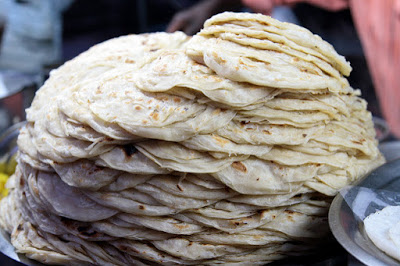My Love Story With Malayalam

Malayalam for official purposes in years, it is still my comfort food, my happy
place and a warm familiar embrace?
based in Muscat, Oman for the first ten years of my life. Back then I was just an
NRI kid. The concepts of a ‘third culture childhood’ were virtually unknown. For
the uninitiated, third culture kids are expatriate children who have three
cultures to call their own. The first being the parent’s culture or the culture of
their country of origin, the second being the culture of the country where they
reside and the third, a happy mixture of the first two. Back then though, we were
just Indians nay Malayalis, living in the Gulf. My culture was very firmly my
parent’s culture. And nothing reinforced this more than the language we spoke at
home, my mother tongue – Malayalam.
still loves) her mother tongue. Her father, Editor and Leader Writer of the
Malayala Manorama had entrusted her with one important responsibility when
she left with me as a ten -month -old babe to distant lands. And that was that his
grandchild would learn to speak Malayalam and not ‘Kurachu, Kurachu Ariyaam’
(I can speak little, little) type of Malayalam, said with a heavy accent of English,
but fluent, rich Malayalam. My mother took it to heart and both her as well as my
father ensured that I did. There was no formal sitting down with Malayalam
books or ‘native tongue hour’ in our household to make sure I spoke the mother
tongue. This was just what they spoke and I spoke. My first words were in
Malayalam. My oldest memories have a Malayalam soundtrack in the
background. And even now, when I play old Malayalam songs from the 80s, I can
picture my mother cooking while our old stereo, flanked by tall towers of audio –
cassettes blared out songs from the large, space-hoarding speakers.
being so far away from family and I an only child was excited to return to the fold
of my extended family. Despite it being the middle of the year, I got in to a nice
school in Kozhikode. The one subject that had me wincing and my teachers
shaking their heads was Malayalam. I could speak the language well, yet my
reading skills had not progressed beyond the alphabet that many liken to the
delicious swirls of Jalebi. In my first mid-term test, I secured 9 marks out of 50.
‘18%’. Marks that are seared in my brain. A tutor was found. A retired teacher in
the residential colony we lived in with her hair severely tied into a bun. Sitting in
the front verandah, she started me on text books from the first standard. I ‘a-aa,
e-eed’ my way through them, working hard to avoid her stony glares and pursed
lips. When I graduated from high school, I scored 95% in Malayalam and I could
read the Malayala Manorama from cover to cover.
read in Malayalam if I really didn’t want to. The first time I had sat down with my
brand new ruled notebook and Nataraj pencil on the cold marble slab of tutor’s
verandah, I had never thought I would want to. Yet, my mother tongue had
gotten the better of me. Somewhere along the road of the Sandhis and Samasams
of Malayalam grammar, I had fallen in love with my mother tongue.
slang that no one outside our town would understand.
hidden alleys of Pune as we went searching for a Malabari restaurant that sold
Kerala Parotta. I used it in the locals of Mumbai as someone asked me for the
time. I carried it with me as Sugutha Kumari’s poetry. I drowned in it as M.T.
Vasudevan’s Randam Oozham. I found pieces of home in it as I watched
bootlegged Malayalam movies on YouTube after I moved to Manila.
as it rushed out to gather my daughter in the maternal embrace of Irayiman
Thampi’s Omana Thinkal Kidavo, lulling her to sleep safely ensconced in the
words of her ancestral culture, making itself at home in the corners of her heart.
firmly in my identity as a Malayali. Yet like all good mothers, Malayalam is also
the wind beneath my wings that helps me have multilingual dreams and envision
the same rainbow coloured dreams for my children. And though I fall in love
with many more languages as I have in the years that have gone by and the years
that will, Malayalam will always remain that first love who taught me what it
feels like to talk and have someone understand everything that you say.
Malayalam will always be the language of my soul.









